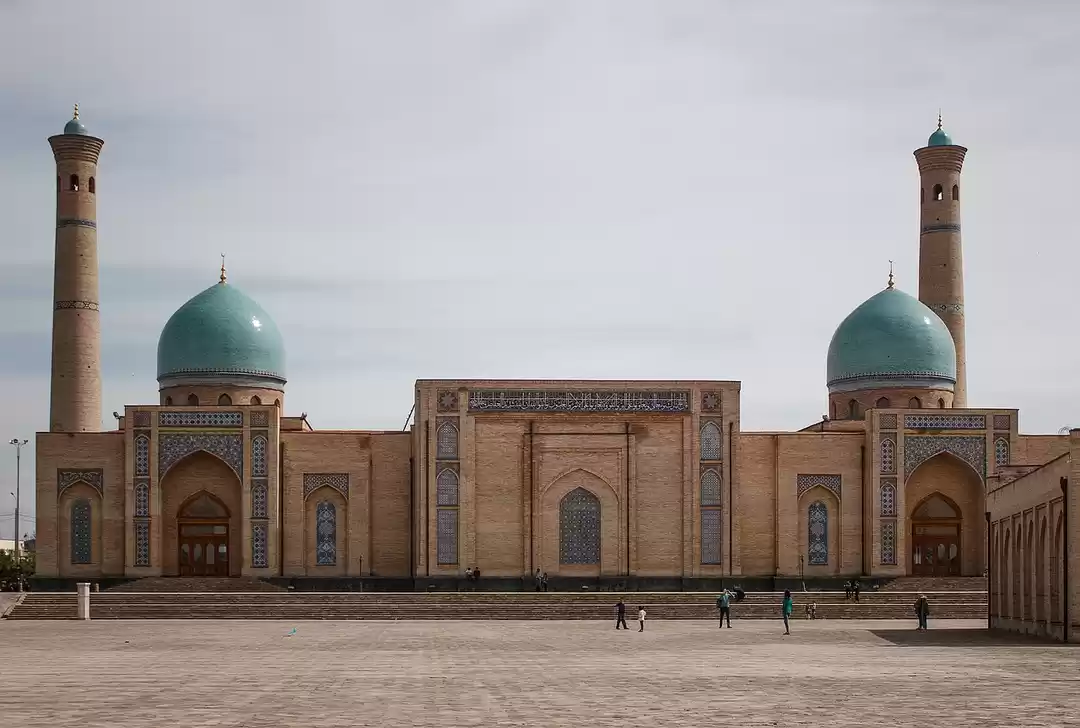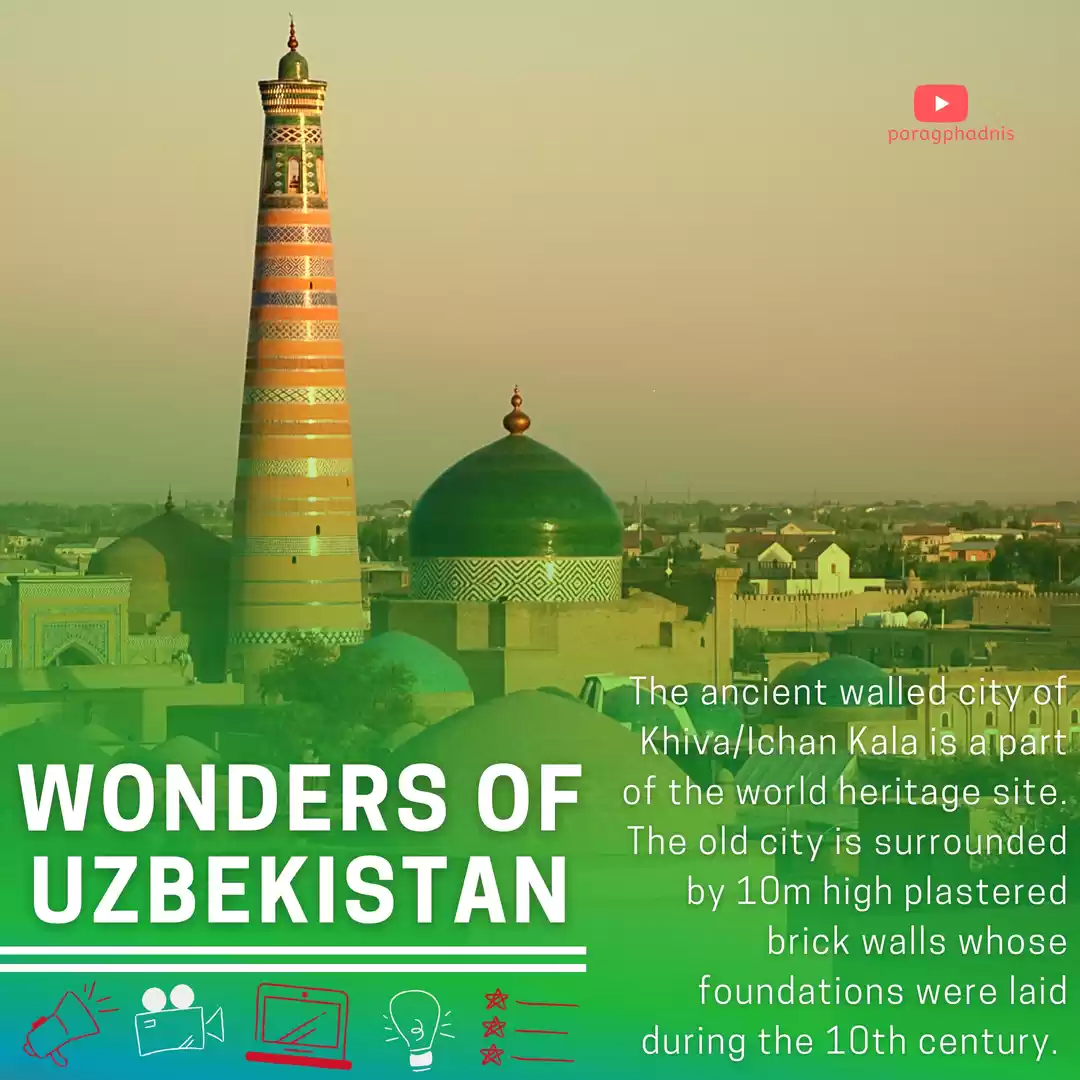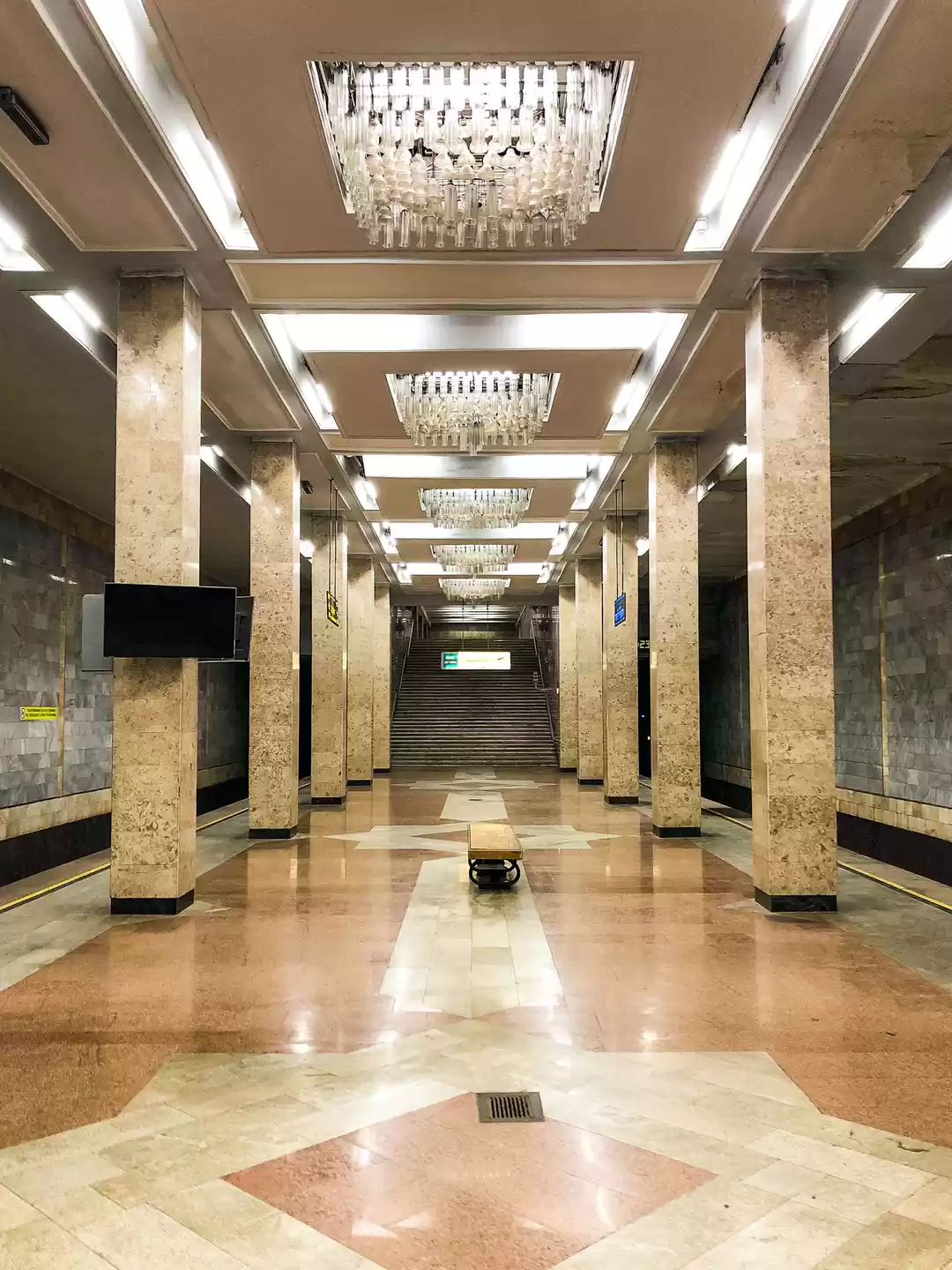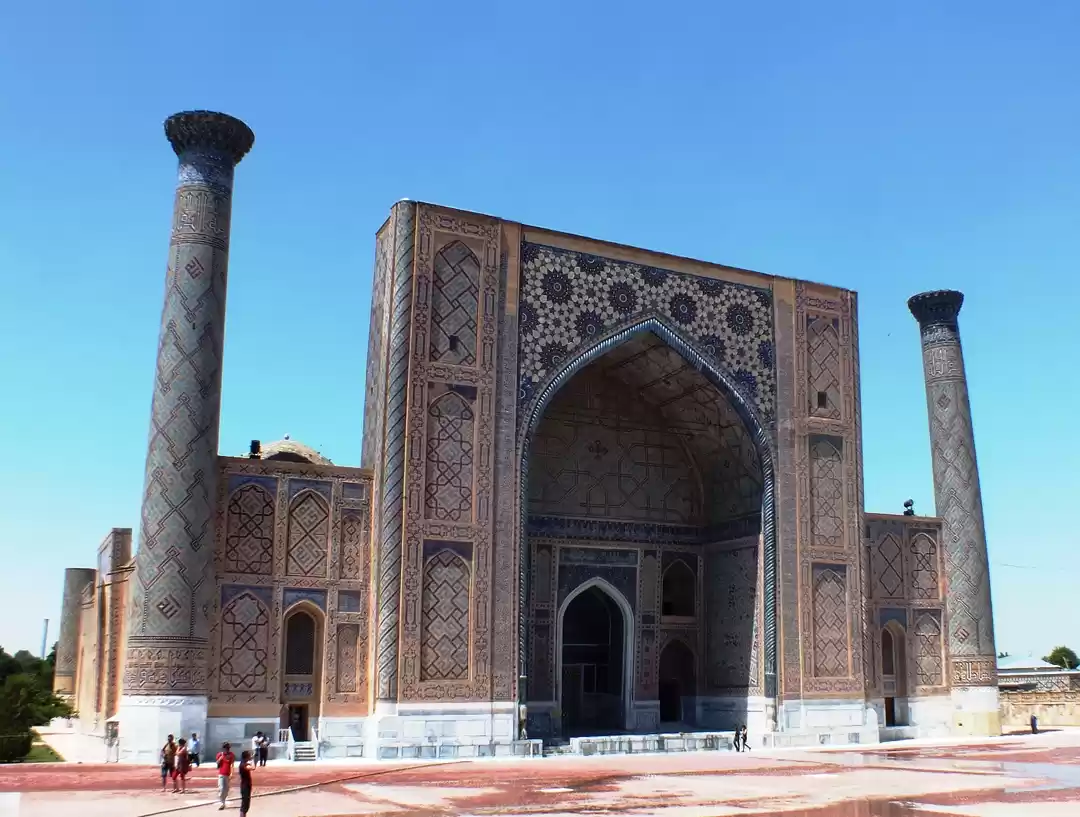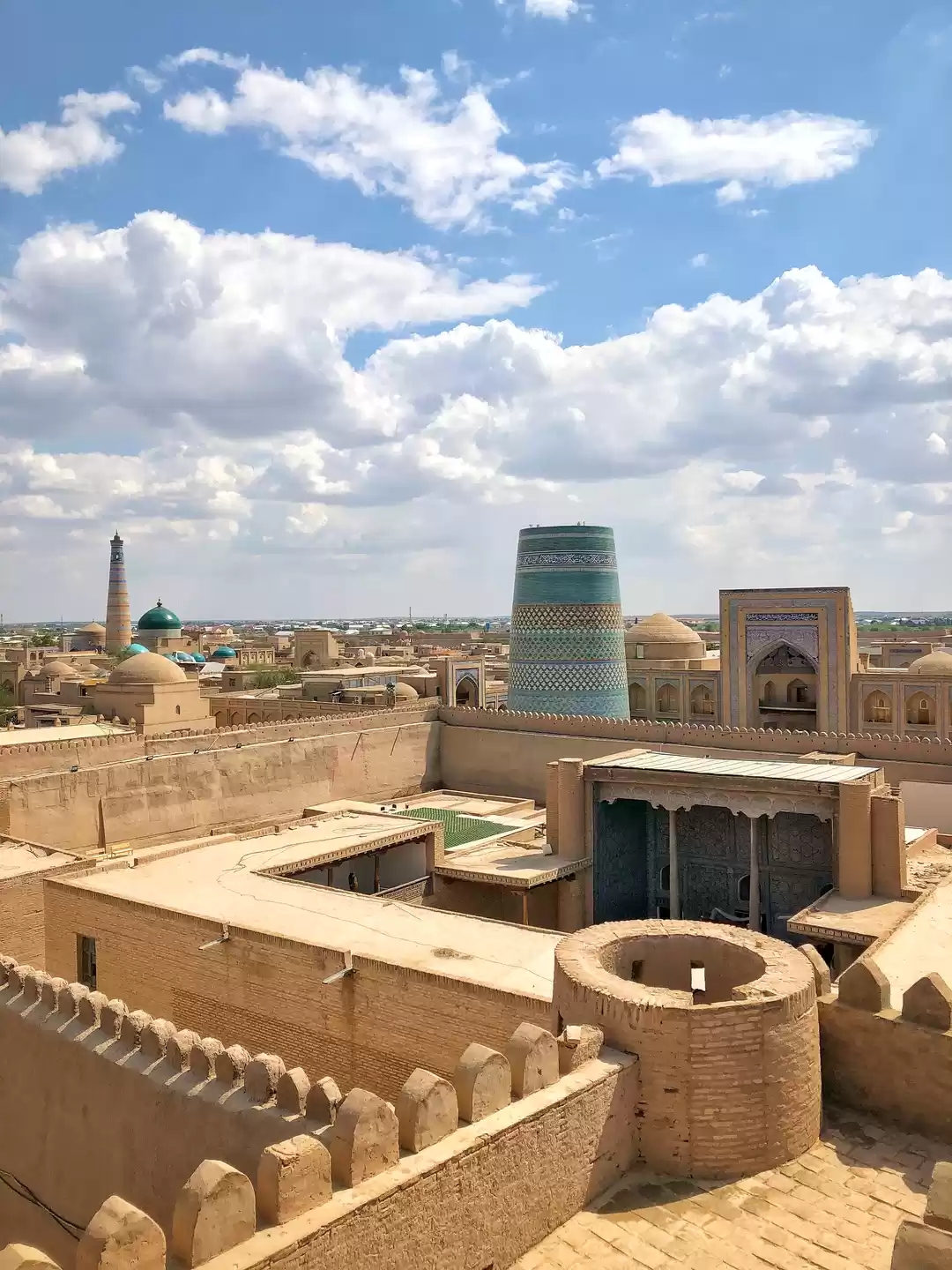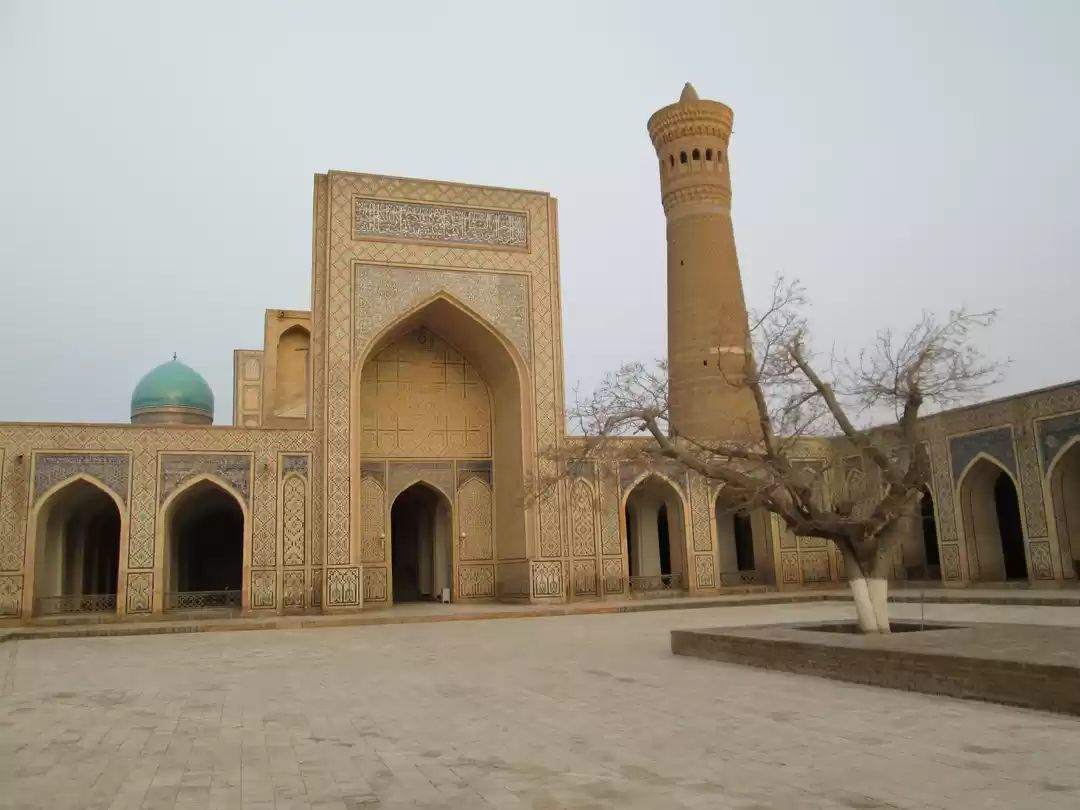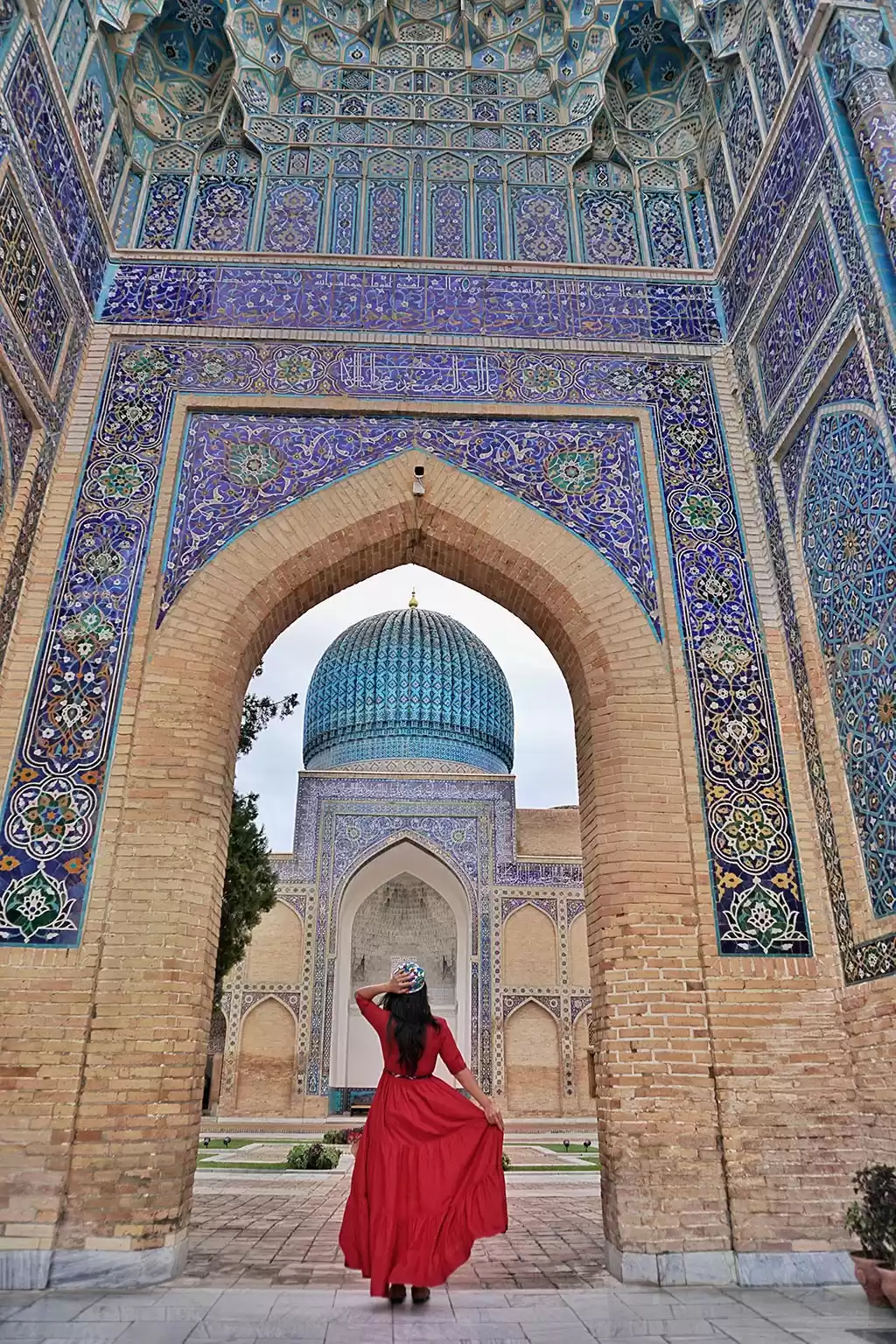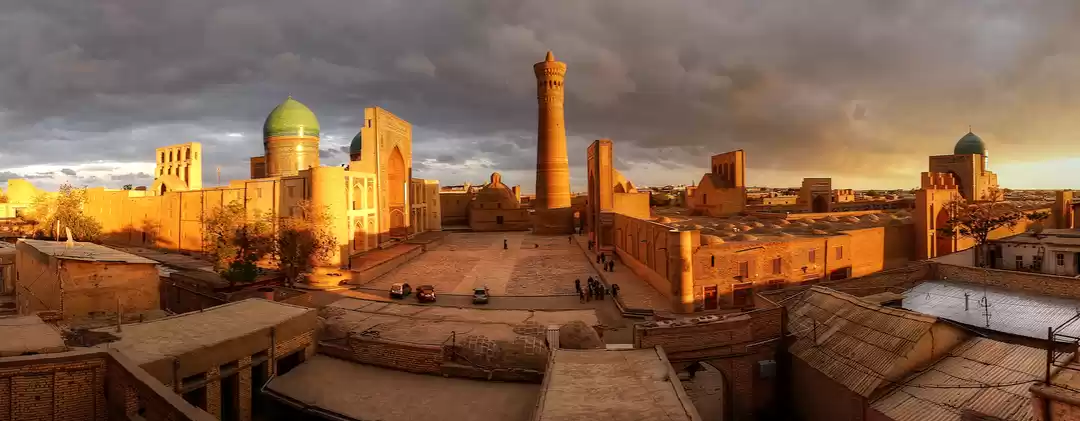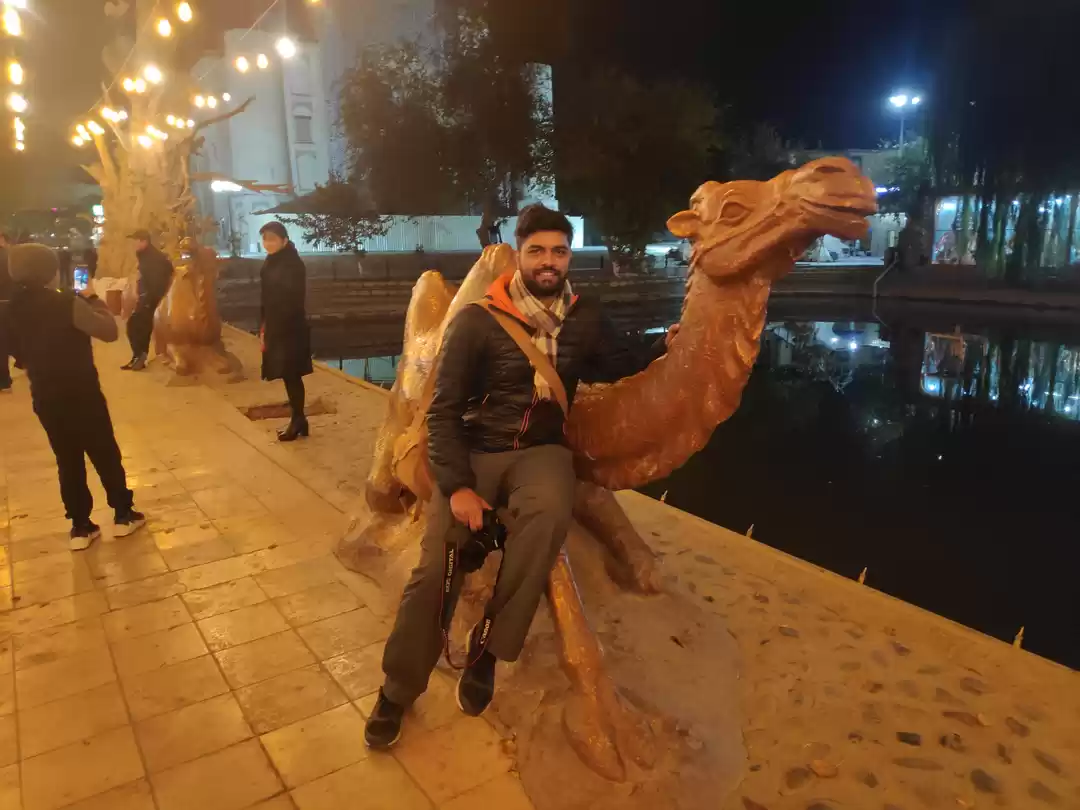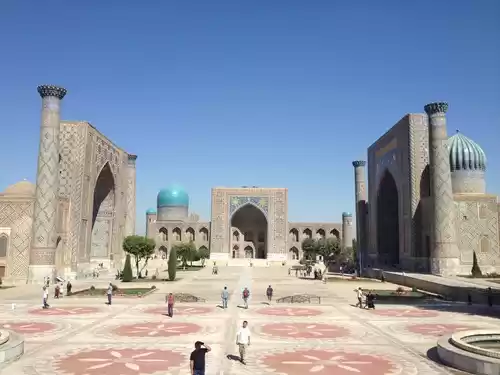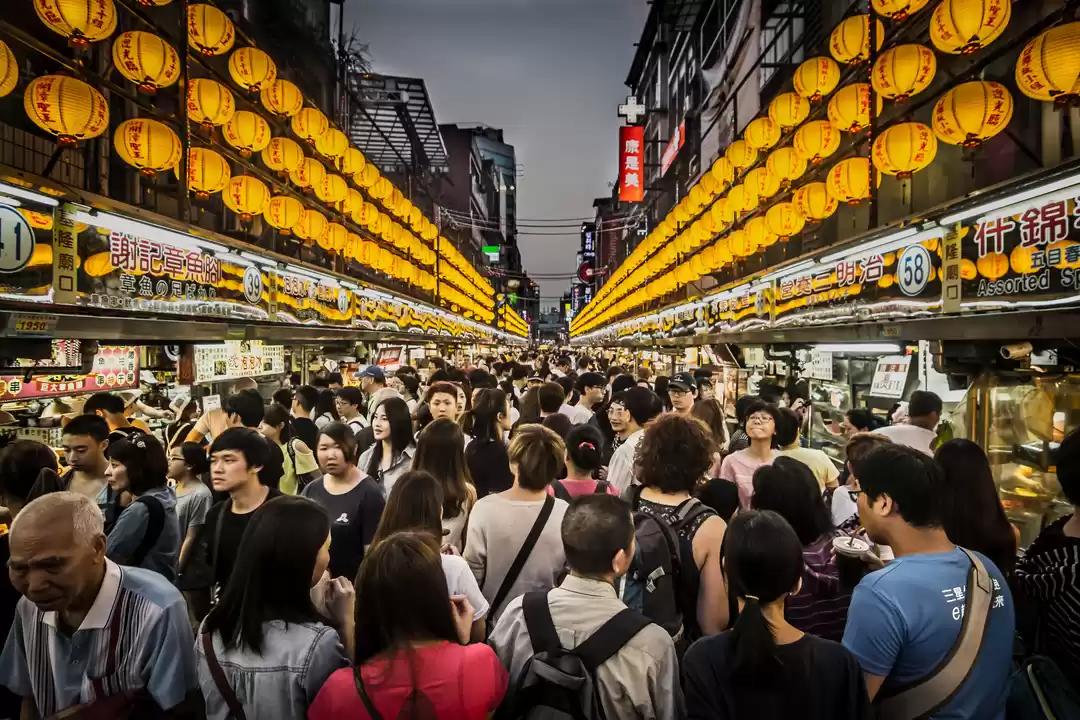

Many of my friends asked me why did I chose this country over plenty of options like Europe or Indonesia? The answer was clear..I wanted to explore off beat destinations. I love historic places so I chose Uzbek this time. Do you know the history relevant with this country? No? come lets explore...I started my journey from Pune-Delhi-Tashkent.

E-visas are easy to get and direct flights from Mumbai/Delhi are available to Tashkent-The Capital of Uzbekistan (Uzbek airlines). Make sure you book your flights quite earlier coz they are very expensive :0 Currency of Uzbek (SOM) is not issued from India so you can carry Dollars or Euros and get them converted on Tashkent International Airport or there are currency exchange banks/machines installed in and around the city. Make sure you convert Soms to Dollers/Euros before you leave the country. Wi-Fi is available at most of the places so you may not require sim cards but, you can get one if required from the airport itself. Most importantly, many of them don't understand english here, they just know Russian and Uzbeki/Turkic so, have translating app with you just in case
It was the month of July which is considered as summer in Uzbek. It was quite hot when I reached to Tashkent around 12Pm. Maximum temperature was 42 degrees..Phewwww :'( Winters are chilly here. I checked-in into the hotel (Le grand Plaza-a budget hotel) and decided to explore nearby places (Little study is required before you reach) 1st stop was Shastri street and monument.
Lal Bahadur Shastriji was born on 2nd Oct 1904. In year 1964, after the death of Javaharlal Nehru, Indian National Congress made him the 2nd Prime-Minister of India. In August-September 1965, Indo-Pak War took place. During this, Shastriji delivered a speech and gave a slogan of "Jai Jawan Jai Kisan". However,to resolve the resistance between India and Pakistan, the USSR( Uzbek Soviet Socialist Republic-Part of Russia from 1924 to 1991) called the two parties to start negotiations in Tashkent in January 1966.
On 10 January the Prime-Minister of India Shastri and the President of Pakistan Ayub Khan signed Tashkent declaration that served as a stop of war and beginning of the establishment of trade-economic relations between the sides. The war formally ended with The Tashkent Agreement but Shastriji died the following day, still in Tashkent, with the cause of his death in dispute; it was reported to be a cardiac arrest. Many among Shastri's supporters and close relatives, refused at the time, and have refused since, to believe the circumstances of his death and allege foul play. Conspiracy theories appeared within hours of his death and have thereafter persisted.

Later, on 31 August 1991, the Uzbek SSR was renamed the Republic of Uzbekistan and declared independence three months before the Soviet Union's dissolution on 26 December 1991. The mysterious death of India's second prime minister, Lal Bahadur Shastri, launched a probe into the conspiracy of it being an assassination. The bollywood movie Tashkent Files was shot here
After a healthy breakfast at the hotel I started heading to Chimgan mountains and Charwaq lake side. This took whole day





Lake Charwaq (Char Bagh/four gardens in Persian) which is situated in Bostanliq region in Northern part of Uzbekiston. You can take lunch in the resort nearby and don't forget to carry your swim wear if you wish to swim into the lake or enjoy the water sports. I chose to sit and relax at one of the shacks ( free of cost) P.S- Don't forget to mention Vegan meal always if you are a vegetarian, food was little bland though







The detour was amazing and refreshing. I came back to the hotel. There are so many restaurants, clubs nearby the hotel. Choose any of them to spend lovely evening and night. Many of the restaurants are owned by Pakistanis and Indians. This country completely is safe for solo wanderers like me :) has good connectivity of subways and metros. Offline google maps can be really helpful or printed maps can be collected from your hotels reception/travel desk.
It is the only architectural and artistic complex, dedicated to rectification of the consequences of Tashkent earthquake in 1966. Monument to courage is dedicated to men and women who rebuilt their flattened city following the earthquake

All the former public of USSR took part in the reconstruction of Tashkent.

The zig-zag crack from the cube goes to pedestal with a women cuddling a child. with one hand she does a pushing moment as if protecting the infant from harm. The male figure depicted in expressive jerk symbolizes the destruction cased by earthquake
After the proclamation of Uzbekistan's independence in September 1991, "Lenin Square" was renamed in 1992 as "Mustaqillik Maydoni", which translates to "Independence Square" in English. The monument to Lenin was dismantled, and in its place the Monument of Independence of Uzbekistan, in the form of the globe, was erected.



Independence square also has a statue depicting a mourning mother sadly looking down onto an eternal flame in memory of her children who fell when defending the country, to commemorate the fallen unidentified soldiers in the past world wars.


To the other side of the square is a park with the alley of fame and memory. There are carved pillars bearing the memory books with the names of all Uzbeks fallen on the battlefields of the world war 2

Spent this beautiful evening at Samarqand Darwaza street and Chorsu market with loads of shopping and dinner. P.S- These bazars are good for buying clothes, ittar, perfumes and chocolates only. Don't buy dry fruits here, Samarqand has huge and better markets of dry fruits.
I was damn damn daaaamn excited to travel in a bullet train (Afrosiyob), this was my 1st experience. It takes 2 hrs approx. from Tashkent to Samarqand.

Hello morning! peaceful and blissful day 4 was well reserved for a day tour to Samarqand. (one can also choose to stay at samarquand and continue to explore Bukhara too from the same train)



Its one of the cities having known for mosques. It's on the Silk Road, the ancient trade route linking China to the Mediterranean. Samarkand is a crossroad and melting pot of the world's cultures. Founded in the 7th century B.C. as ancient Afrasiab, Samarkand had its most significant development in the Timurid period from the 14th to the 15th centuries.
Amir Timur or Tamerlane -"Timur the Lame", was a Turco-Mongol conqueror who founded the Timurid Empire in and around modern-day Afghanistan, Iran and Central Asia, becoming the first ruler of the Timurid dynasty. As an undefeated commander, he is widely regarded as one of the greatest military leaders and tacticians in history. Timur was the great-great-great-grandfather of Babur (1483–1530), founder of the Mughal Empire, which then ruled almost all of the Indian subcontinent.



The Gūr-i Amīr or Guri Amir is a persian style mausoleum of the Asian conqueror Timur in Samarkand, Uzbekistan. It occupies an important place in the history of Persian-Mongolian Architecture as the precursor and model for later great Mughal architecture tombs, including Gardens of Babur in Kabul, Humayun's Tomb in Delhi and the Taj Mahal in Agra, built by Timur's Persianised descendants (Babar) , the ruling Mughal dynasty of Indian Subcontinent.


The Registan was a public square, where people gathered to hear royal proclamations, heralded by blasts on enormous copper pipes called dzharchis - and a place of public executions. It is framed by three madrasahs (Islamic schools) of distinctive Islamic architecture. The square was regarded as the hub of the Timurid Renaissance.
The major part of decoration was lost, but due to efforts of restorers it was recovered in the second half of XX century.
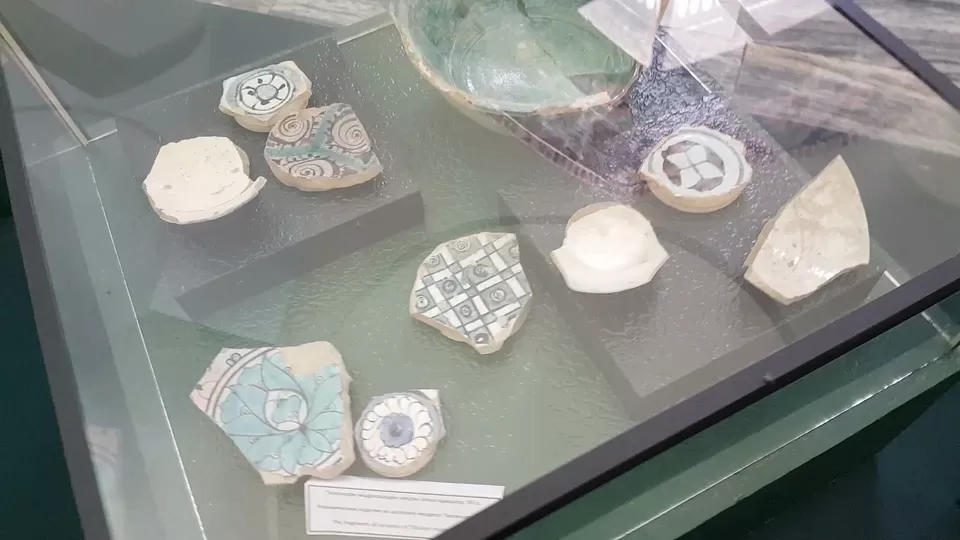
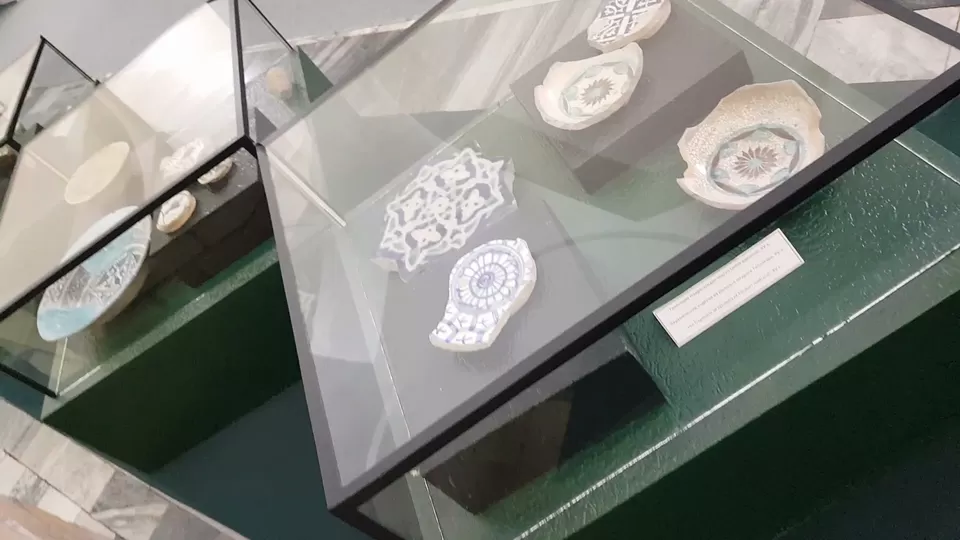
Sher-Dor Madrasah - “Madrassah with Lions”. It is the distorted and exaggerated reflection of the Ulugbek Madrasah, which is located just opposite. In the center of the arch above the entrance there is the image of swastika, which from ancient times was the symbol of abundance and fertility. Also there are images of tigers with the sun on their backs on each side of the arch.

It is the burial place of royal persons and nobles. But the main mausoleum from which the necropolis starts seems to be the imaginary grave of Prophet Muhammad's cousin, Kusam ibn Abbas. The complex was called "Shakhi Zinda" that means in Persian "The Living King".





Mouthwatering and hunger satisfying Uzbek cuisine is must have in the old city- Uzbek veg Plaov (Pulao), khichdi, super-sweet- fresh watermelons and achichuk salad, consisting of tomato, red onion and cucumber. This is served with plaov, the national dish – rice cooked in a huge pot and loaded with veggies.

Not far from Shohizinda is Bibi-Khanym mosquee. The mosque was built by the Tamerlane's favorite wife, Bibi-Khanym, in honor of his return from a trip to India. Do read the story relating this, cant write whole of it here.


The huge Quran stand — crafted from ornate marble blocks. This remarkable sight originates from the time of Amir Timur.

Must buy- Dry fruits, Peanut butter chocolates, Souvenirs and most attractive Uzbek dolls. Don't forget to bargain :)



My train back to Tashkent was delayed by an hour so I chose to take a stroll nearby the railway station and I found a tram station just outside. Undoubtedly I took a tram to next two unknown stations and kept observing the city through the windows of tram (they dint charge me for the tickets too :))


It was my last night in Uzbekiston, I wanted to make it memorable so out of nowhere a thought came into my mind that I should just explore the subways and metro stations ( trust me they are really beautiful and every station has different architecture). I headed to the nearest metro station and started metro hopping! (I got lost and it was undoubtedly unforgettable LOL :) )
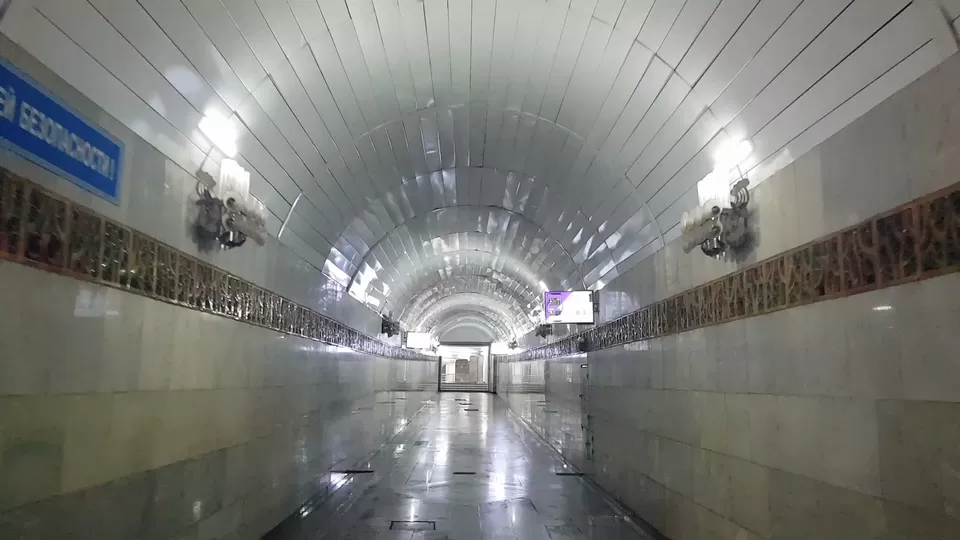


Drained me hit a restaurant nearby the hotel- Daal, Paneer, Raita and Irani naan satisfied my taste buds and hunger. To my amaze owner was from Lahore-Pakistan, very kind person and spoke really well Punjabi and Hindi. I gotta chance to eat a Pakistani mango! by god puri India wali feeling aagayi :)


The last stop before flying back to India. Uzbekistan is double landlocked country full of history,culture and country is perfect home to mosques, mausoleums and madrasas in every shade of blue. Its centuries-long history under Persian rule and as a key stop on the Silk Road left a rich cultural and architectural legacy, made all the more fascinating by the country’s time as an enclave of the Soviet Union. Much of Tashkent was damaged by an earthquake in the 1960s and rebuilt while under Russian rule, so it’s a mix of stark Soviet buildings, classical Russian architecture and restored, photogenic blue-tiled 12th-century mosques. Do svidaniya!




















































